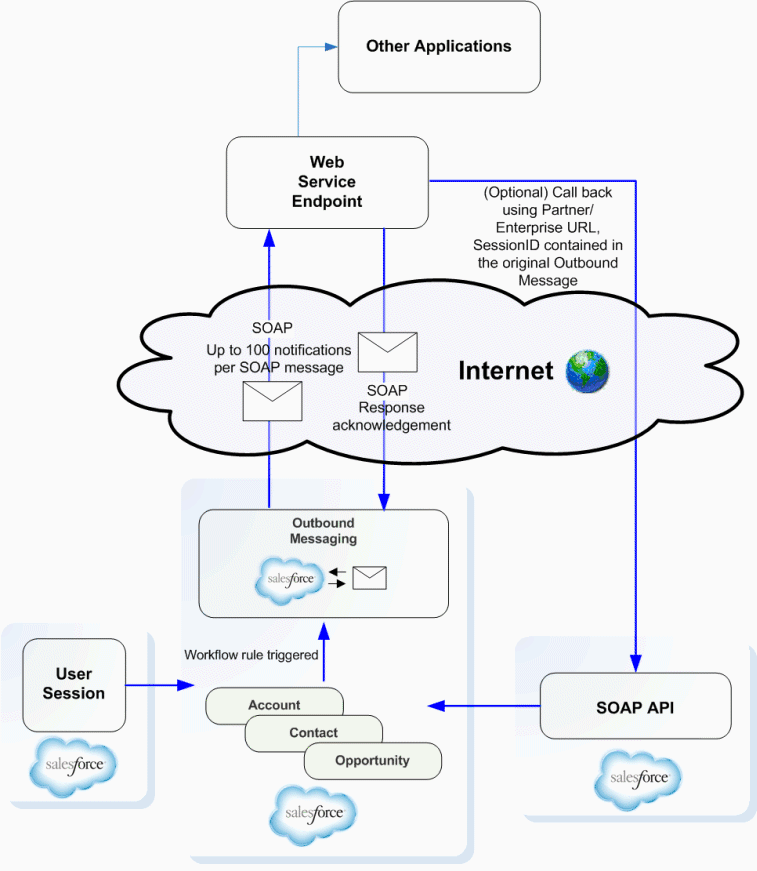In the fast-evolving landscape of business technology, Salesforce stands out as a leader, constantly innovating to meet the needs of modern enterprises. One of the most significant areas where Salesforce is making a substantial impact is through the integration of AI models into its ecosystem. These AI models are designed to supercharge productivity, streamline operations, and enhance customer experiences. In this blog post, we’ll explore what Salesforce AI models are, how they work, and why they matter for businesses today.
What Are Salesforce AI Models?
Salesforce AI models are sophisticated machine learning algorithms embedded within the Salesforce platform. These models are designed to analyze vast amounts of data, identify patterns, and make predictions that help businesses make more informed decisions. They are the backbone of Salesforce’s AI-powered features, like Einstein, which provides insights and automations across various Salesforce products.
Key Components of Salesforce AI
1. Salesforce Einstein
Salesforce Einstein is the AI layer of Salesforce, integrated across all of its cloud products. It includes a range of AI models that support different functions:
- Einstein Analytics: This tool uses AI to analyze data and provide actionable insights, helping businesses understand trends and forecast future outcomes.
- Einstein Discovery: It automates data analysis and identifies key drivers of business metrics, suggesting improvements.
- Einstein Vision and Language: These models help in understanding and categorizing images and text, enabling automated image recognition and sentiment analysis.
2. Natural Language Processing (NLP)
Salesforce AI models use NLP to understand and process human language. This is particularly useful in features like chatbots and automated customer service, where the system needs to interpret customer queries and respond appropriately.
3. Predictive Analytics
These models analyze historical data to make predictions about future trends. For example, Salesforce’s predictive lead scoring can help sales teams prioritize their efforts by identifying which leads are most likely to convert.
How Do Salesforce AI Models Work?
Salesforce AI models work by leveraging large datasets collected from various sources, including customer interactions, sales data, and marketing campaigns. These datasets are processed using machine learning algorithms that learn from the data and improve over time. Here’s a simplified breakdown of how these models function:
Data Collection: Salesforce collects data from all interactions and touchpoints across its platforms.
Data Processing: The collected data is cleaned and processed to make it suitable for analysis. This includes removing duplicates, handling missing values, and normalizing data.
Model Training: AI models are trained using historical data. For instance, a predictive model might be trained on past sales data to forecast future sales.
Deployment and Iteration: Once trained, the model is deployed within the Salesforce environment, where it begins making predictions and providing insights. Over time, as more data is collected, the model is retrained and refined to improve its accuracy.
Benefits of Salesforce AI Models for Businesses
1. Enhanced Decision-Making
By providing actionable insights and predictions, Salesforce AI models help businesses make data-driven decisions. This can lead to more effective strategies and improved outcomes.
2. Increased Efficiency
Automation powered by AI models reduces the need for manual intervention in various processes, such as lead scoring, customer service, and data analysis. This frees up time for employees to focus on more strategic tasks.
3. Personalized Customer Experiences
Salesforce AI models enable businesses to deliver personalized experiences to customers by understanding their preferences and behaviors. This can lead to higher customer satisfaction and loyalty.
4. Scalability
As businesses grow, so does their data. Salesforce AI models are built to handle large volumes of data, ensuring that insights remain relevant and actionable even as the business scales.
Real-World Applications of Salesforce AI Models
- Sales Forecasting: Businesses use AI models to predict sales trends, helping them to allocate resources more effectively.
- Customer Service Automation: AI-powered chatbots and virtual assistants handle routine customer queries, allowing human agents to focus on more complex issues.
- Marketing Automation: AI models optimize marketing campaigns by predicting which messages will resonate most with different customer segments.
The Future of Salesforce AI
Salesforce continues to innovate its AI offerings, with ongoing advancements in areas like deep learning, conversational AI, and real-time data processing. As AI technology evolves, we can expect even more powerful tools that will further enhance the capabilities of the Salesforce platform.
Conclusion
Salesforce AI models represent a significant advancement in the way businesses can leverage technology to drive growth and efficiency. By integrating AI into their operations, companies can unlock new levels of insight, automation, and customer engagement. As the technology continues to evolve, those who embrace it early will be well-positioned to lead in their respective industries.
Whether you’re a small business looking to improve customer relations or a large enterprise aiming to optimize your operations, Salesforce AI models offer tools that can help you achieve your goals. Now is the time to explore how these models can benefit your business and set you on the path to success in an increasingly data-driven world.


